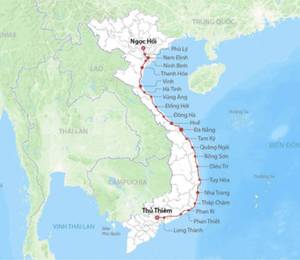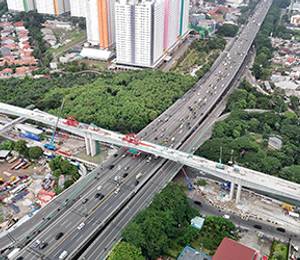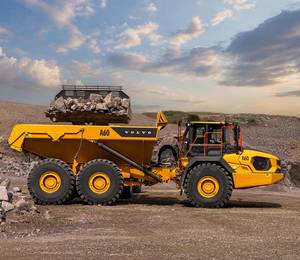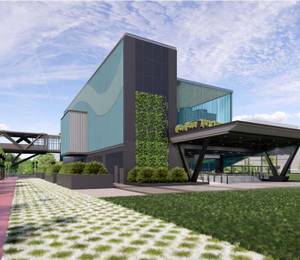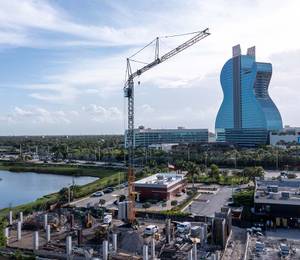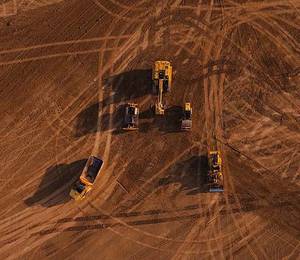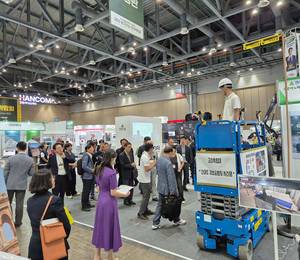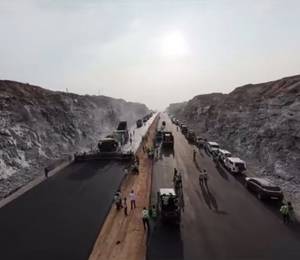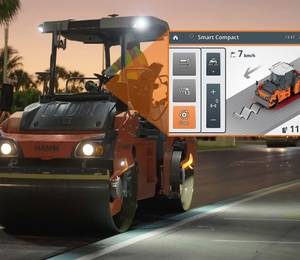Unite Co Ltd was recently tasked to undertake a rehabilitation work on a section of the Jōban Expressway in Mito, about 140 km northeast of Tokyo in Japan. It covered an area of approximately 800 sq m, featuring 250 m in length and 3.425 m in width.
To help complete the job, the company chose a 2 m front-loading W 210 cold milling machine from Wirtgen. While traffic continued to flow on one lane, the 500-kW machine kept operating to remove the damaged sections.
“Our machine is equipped with the vacuum cutting system (VCS),” said Koji Yamada, the site manager on the project. Five years ago, the VCS system developed by Wirtgen was included in the New Technology Information System (NETIS) of the Japanese Ministry of Land, Infrastructure, Traffic and Tourism.
To repair cracks in the road pavement, the W 210 was equipped with a standard milling drum. After removal of the 10-cm-thick surface course, the machine milled the binder course to a depth of 15 cm in a second pass. Because the different types of mix were separated, it was possible to return both layers to the material cycle for reuse in line with their technical suitability and qualitative characteristics.
The selective reclaiming of the material clearly delivers ecological and economic benefits. Wirtgen added that when intelligent milling technology is factored in, its cold milling machines not only optimise the overall rehabilitation process, but also the cost-effective reuse of the RAP in the asphalt mixing plant.
Load-dependent water sprinkling plays a key role here. The water required for cooling the cutting tools is regulated in accordance with the engine load and milling speed. As the water system is automatically switched on when the milling drum is lowered into working position and automatically switched off when the milling work is stopped, water consumption can be cut considerably. In particular, up to 20% of the water can be saved, claimed Wirtgen.
As a result, the service life of the cutting tools is extended, the cold milling machine requires less frequent refills and the downtimes are shorter. In addition – and this is said to be decisive for materials processing – the residual moisture of the milled material is only 3–4% per tonne. According to Wirtgen, if its milling technology is not employed, the residual moisture is generally 5%.
The company further explained that when producing new asphalt, a simple equation applies to the drying process in the asphalt mixing plant: 1% drier source material saves 1 l of heating oil in the production of 1 t of asphalt. On top of this comes a reduction in CO2 emissions due to the lower energy requirements. With that in mind, when processing the milled material on the Jōban Expressway, a total of some 400 l of heating oil were saved – and in just two hours, as this was how fast Unite Co Ltd selectively and precisely removed the surface and binder courses with the W 210.
Mr Yamada commented, “The quality of the milled surface is flawless thanks to the Level Pro levelling system – it’s the perfect base for paving and compacting the new asphalt.”
